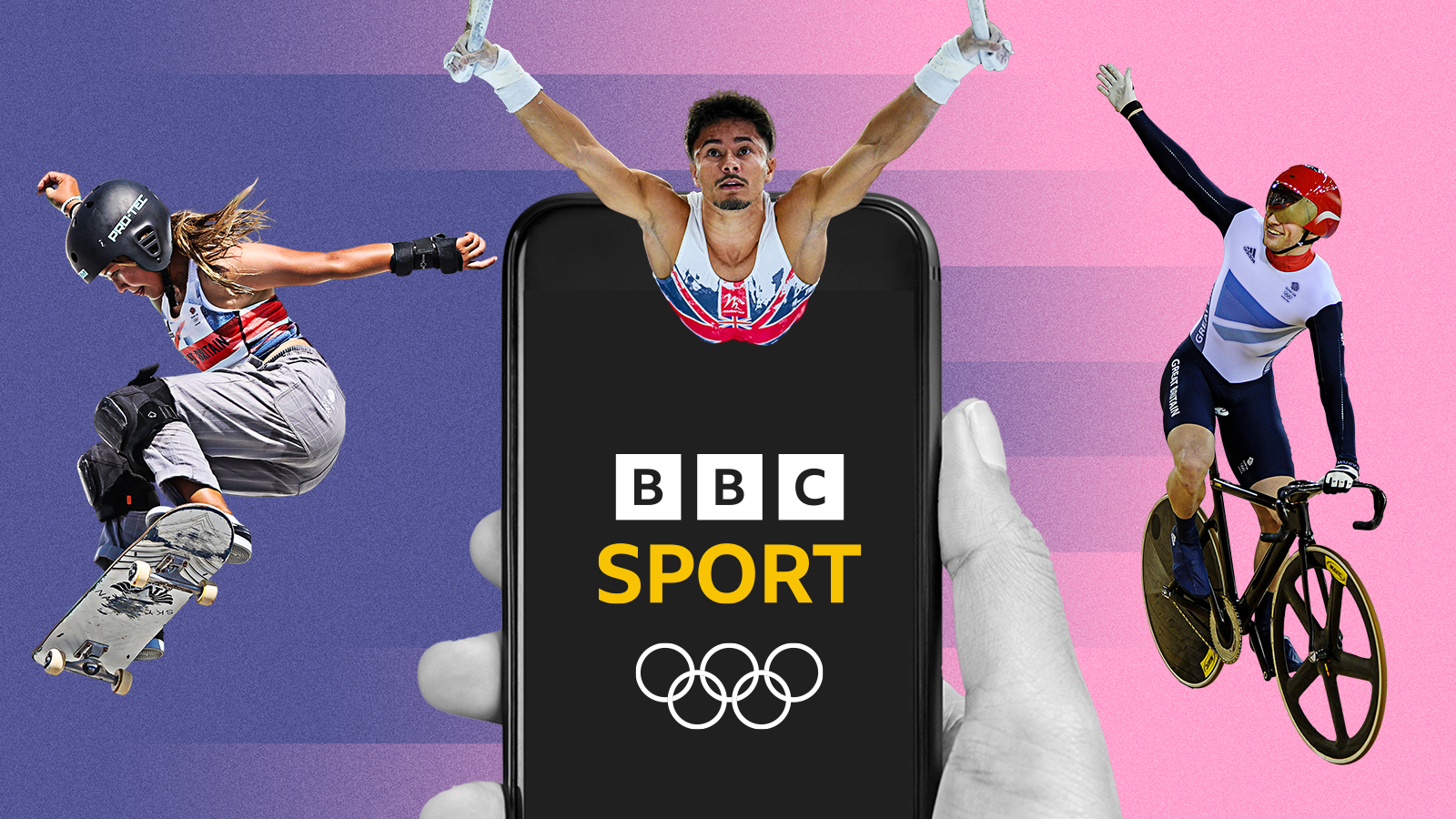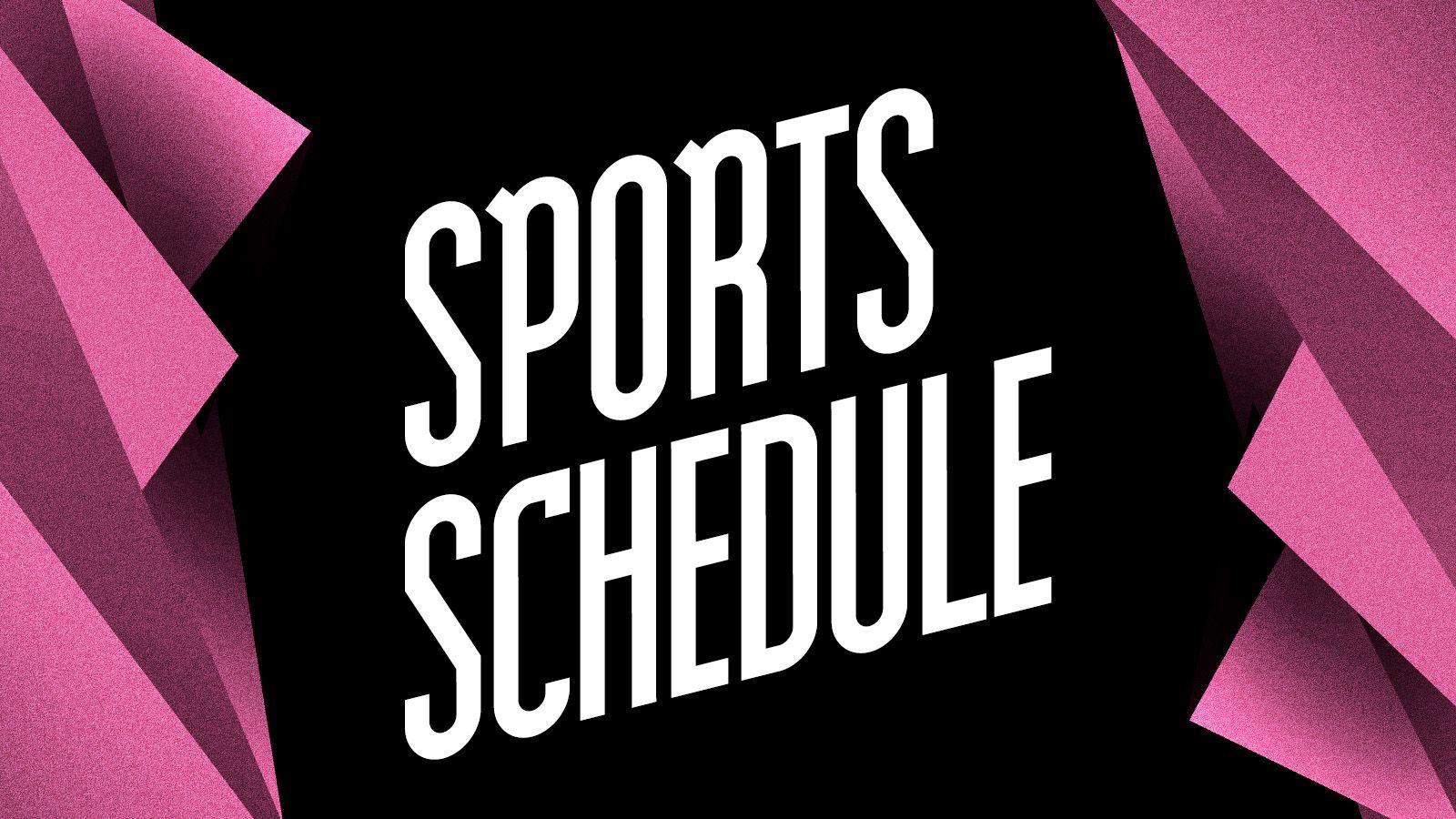Drama, emotion & grit - How athletes from NI made it a golden Games
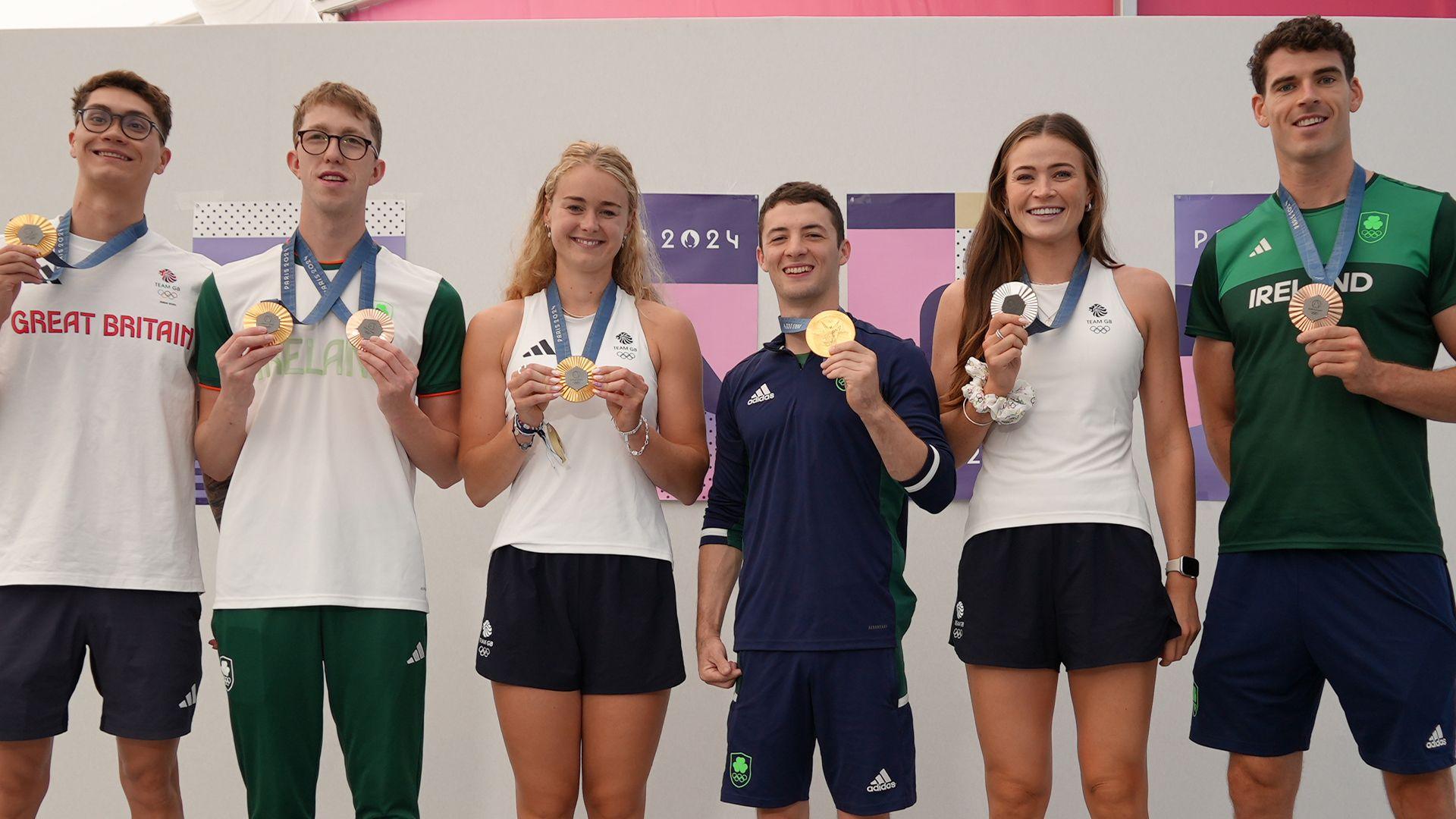
Athletes from Northern Ireland earned four gold medals, one silver and two bronzes at the Paris Games
- Published
This article was originally published in in August 2024 at the end of the Olympics in Paris.
You can watch 'Paris 2024: Medals and Memories' on BBC iPlayer now and on BBC One NI at 20:30 GMT on Monday.
Seven Olympic medals achieved by six athletes from Northern Ireland.
To say it's been a Games to remember in Paris is something of an understatement.
Prior to these Olympics, only three athletes from Northern Ireland had even won an Olympic gold medal.
In Paris alone, four more were added to that tally.
There is history in every street of the French capital, and throughout these Olympics it was the six medallists from Northern Ireland who wrote their own Parisian chapter.
First up, it was the turn of Team Ireland swimmer Daniel Wiffen. Coming into the Games as a world champion in the 800m and 1500m freestyle, the pressure was on.
He was also talking a good game, declaring he would not return home from Paris without a medal.
The 23-year-old has tremendous self-belief, but he was able to back it up in style.
After a tight, three-way battle for the win, the La Defense Arena was absolutely rocking as Wiffen pulled out an unbelievable final 50 metres to take his first Olympic gold.
Wiffen had been one of the calmest people in Paris ahead of the biggest competition of his life, and once he was on the podium the emotion began to come pouring out as his dream was realised.
Paris 2024: Medals and Memories
- Attribution
Wiffen makes history with Olympic 800m freestyle gold
- Published30 July 2024
Scott wins dramatic Olympic quad sculls gold with Team GB
- Published31 July 2024
'Emotions through the roof' as McClenaghan makes history
- Published3 August 2024
Jack McMillan helps Team GB to relay gold
- Published30 July 2024
You know the famous phrase about buses. You wait ages for one to come along, and then two come at once.
Just 90 minutes after Wiffen's historic gold, Jack McMillan's name was etched into the history books.
McMillan had helped Team GB to the final of the 4x200m freestyle relay that morning, and although he watched the final from the stands as Duncan Scott and Matt Richards returned to the team, he had more than played his part.
"We hadn't had a gold medal from Northern Ireland in a while and we managed to do it on the same night, which is pretty historic," said Wiffen.
McMillan added it had been "an incredible journey" and to share it with his friend was "quite special".
"It's been an incredible journey so far," said McMillan, who swam for Ireland in the Tokyo Games before switching to GB.
"We were quite young when we started to swim with each other and we've been great mates since then.
"To see each other get to where we got to is unbelievable."
Scott and McClenaghan add to history
After an unforgettable night in the pool, there was more history to follow as Hannah Scott became the first woman from Northern Ireland to win Olympic gold since Lady Mary Peters in 1972.
Scott's gold was perhaps the most dramatic of them all in the women's quadruple sculls.
In a thrilling battle with the Netherlands, the Team GB crew of Scott, Lauren Henry, Lola Anderson and Georgie Brayshaw led for only one metre - but it was the crucial one.
When all looked lost, they had pulled it out of the bag with a late sprint for the line.
It went down to a photo finish, and Scott and her crew mates could hardly believe what they had achieved. The winning margin was just 0.15 seconds.
With three gold medals secured, it will go down as one of the most remarkable 24 hours in Northern Ireland's storied sporting history.
On the walk of champions in front of the Eiffel Tower, the scenes of Scott dancing the evening away will live long in the memory.
That is what the Olympics is all about.
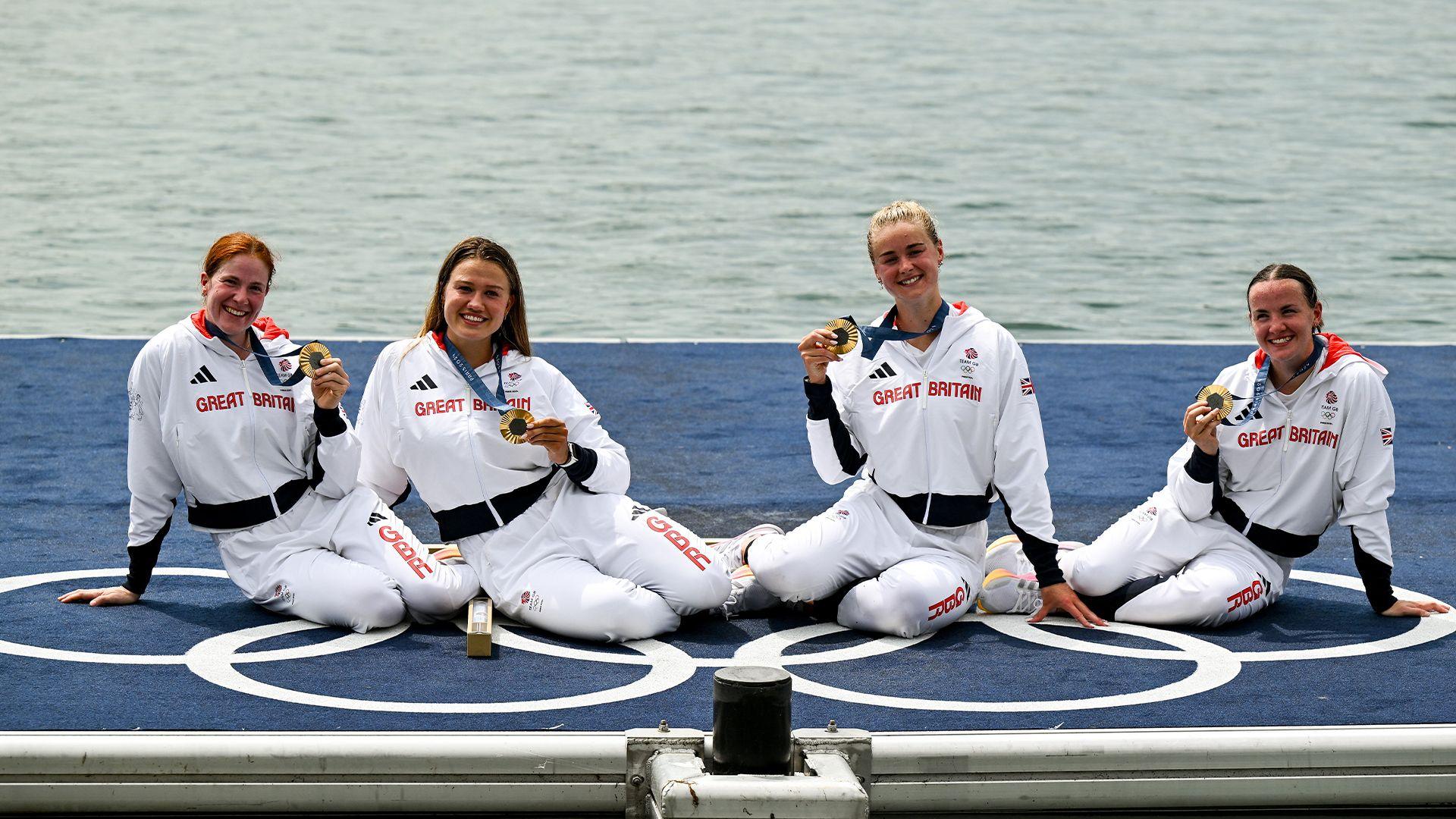
Hannah Scott (second from right) became the first woman from Northern Ireland to win an Olympic gold medal since Lady Mary Peters in 1972
After watching fellow world champions Wiffen and Scott take gold, it was the turn of Ireland gymnast Rhys McClenaghan to take to the pommel horse in his bid for glory.
Three years after a costly error in his final routine in Tokyo, this time McClenaghan was flawless as he took gold.
In the final few seconds, his coach Luke Carson had his head in his heads as McClenaghan prepared to dismount.
He knew a big score was coming, and McClenaghan delivered and let out a huge roar.
It was a tense wait as the final gymnasts completed their routines, but, ultimately, gold was his.
Again, tears flowed on the podium as he completed gymnastics' Grand Slam. It was history in the making for the 25-year-old.
As well as the four gold medallists, there was also success for rowers Rebecca Shorten and Philip Doyle.
Doyle and Daire Lynch won a bronze medal for Ireland in the men's double sculls, and the following race Shorten and the rest of her Team GB crew were pipped to gold by the Netherlands in the final of the women's four.
A silver and bronze in the space of 45 minutes, and Wiffen wasn't finished either, as he came third in the 1500m freestyle to add to his historic gold a few days later.
'We've been building for this moment for some time'
Of the six medallists from Northern Ireland at the Olympics - three came in the green of Ireland, the other three in white of Team GB.
Three rowers, two swimmers and a gymnast who have brought joy and pride to fans, friends and family watching both at home or, for those lucky enough, in Paris itself.
The Olympians may have been in different colours but they cheered each other on throughout the Games.
Doyle had just won bronze and was on his way to the podium when he stopped to cheer on Shorten in the closing stages of the women’s four.
He says it was "amazing" to watch her and her team cross the line in second position.
When the six medallists gathered in the Olympic village before departing Paris, McClenaghan said it was special being able to celebrate together.
"It's definitely an achievement coming from Northern Ireland just to be here at the Olympic Games," he said.
"I'm so proud to be standing amongst all of the other Olympic gold medallists.
"The fact we are even saying that in plural is incredible."
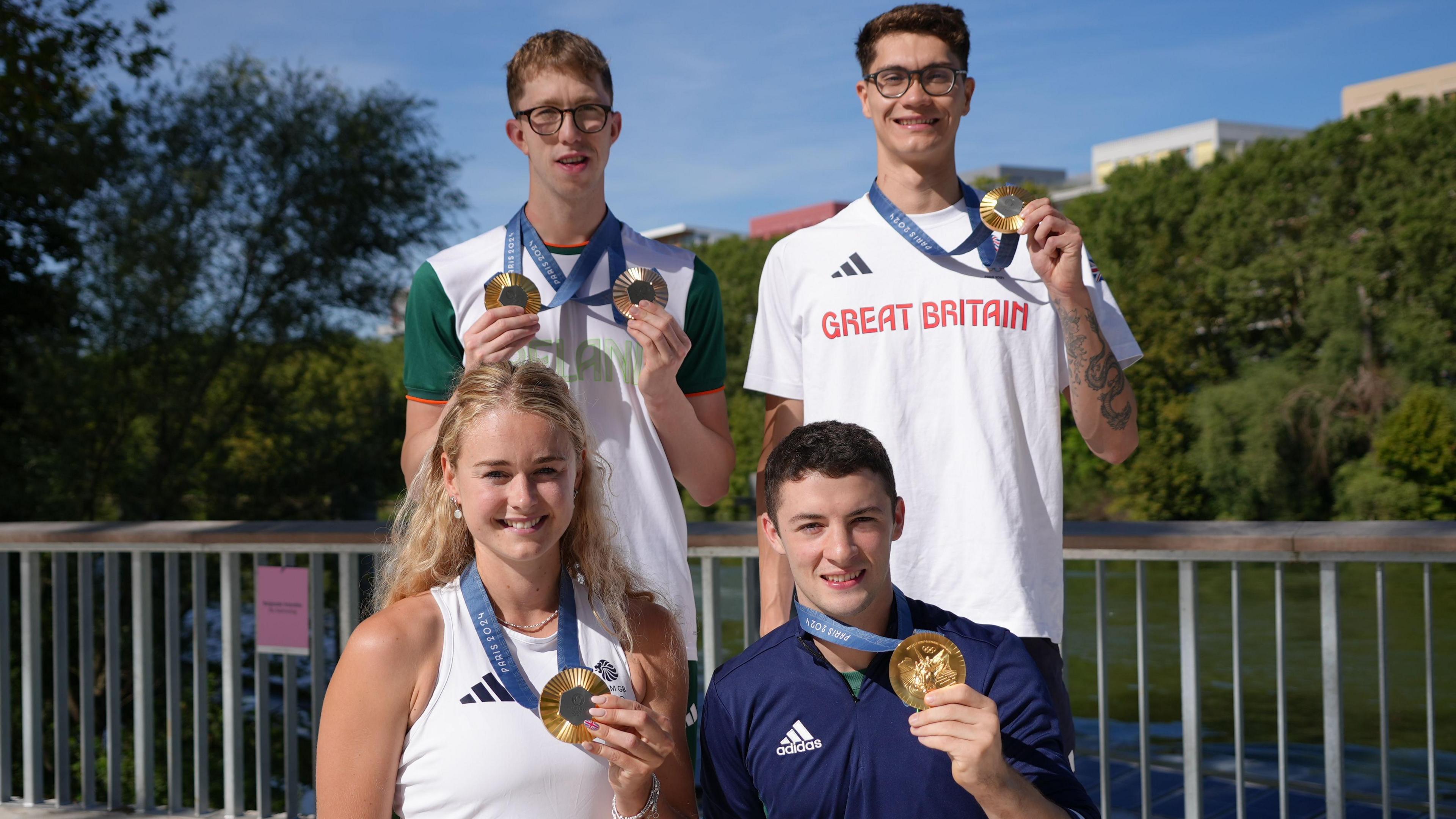
The four gold medallists from Northern Ireland met in the Olympic Village to celebrate their success
Scott added that it was "surreal" for four athletes from Northern Ireland to have won gold medals in Paris.
"We've just exploded and we've been building for this moment for quite some time," she said.
"To come away with four gold medals, I don't think that anyone really expected that. It's been really cool.
"There is the momentum of the swimmers getting their gold, then for me and Rhys getting his after, it's been a really cool experience for Northern Ireland. I'm really proud."
And perhaps this is the most exciting aspect of the golden moments.
Wiffen, Scott and McClenaghan were already world champions in their own right heading to Paris, and backed that up with Olympic gold.
All three are aged 25 or under, and have their best years ahead of them.
McMillan, too, is only 24 and has targeted individual events at the next Olympics in Los Angeles in 2028.
He said the "possibilities are endless" for the future, and Wiffen added: "What's possible? Many medals to come, I'd say."
Who are we to disagree?
After 36 years of waiting for someone from Northern Ireland to be on that top step again, this golden generation could just be getting started.
You can watch 'Paris 2024: Medals and Memories' on BBC iPlayer now and on BBC One NI at 20:30 GMT on Monday.
Related topics
- Published10 August 2024
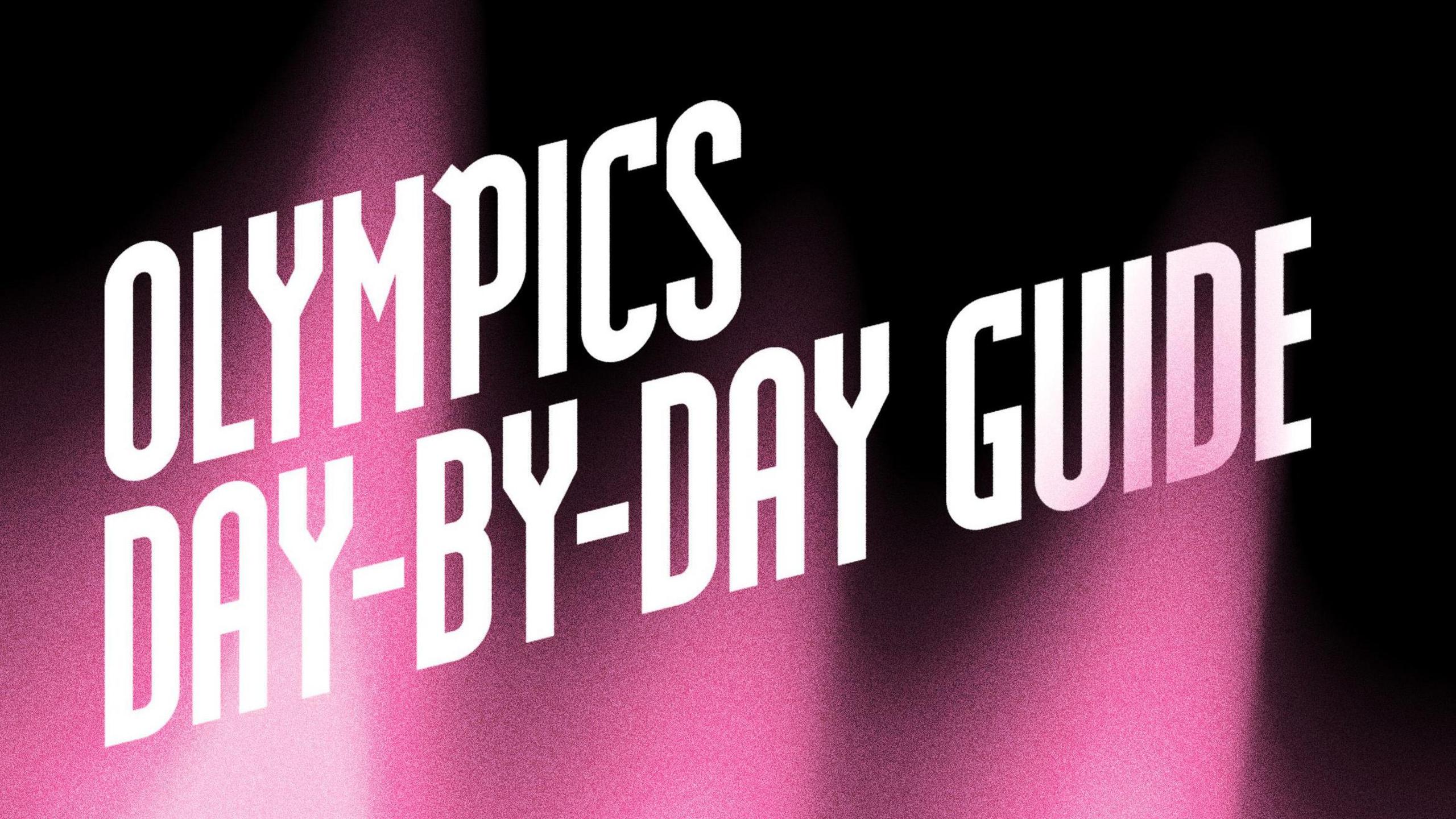
- Published26 July 2024
